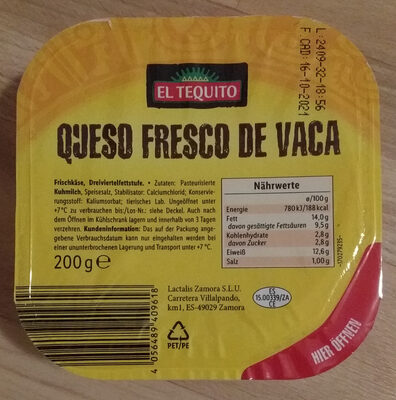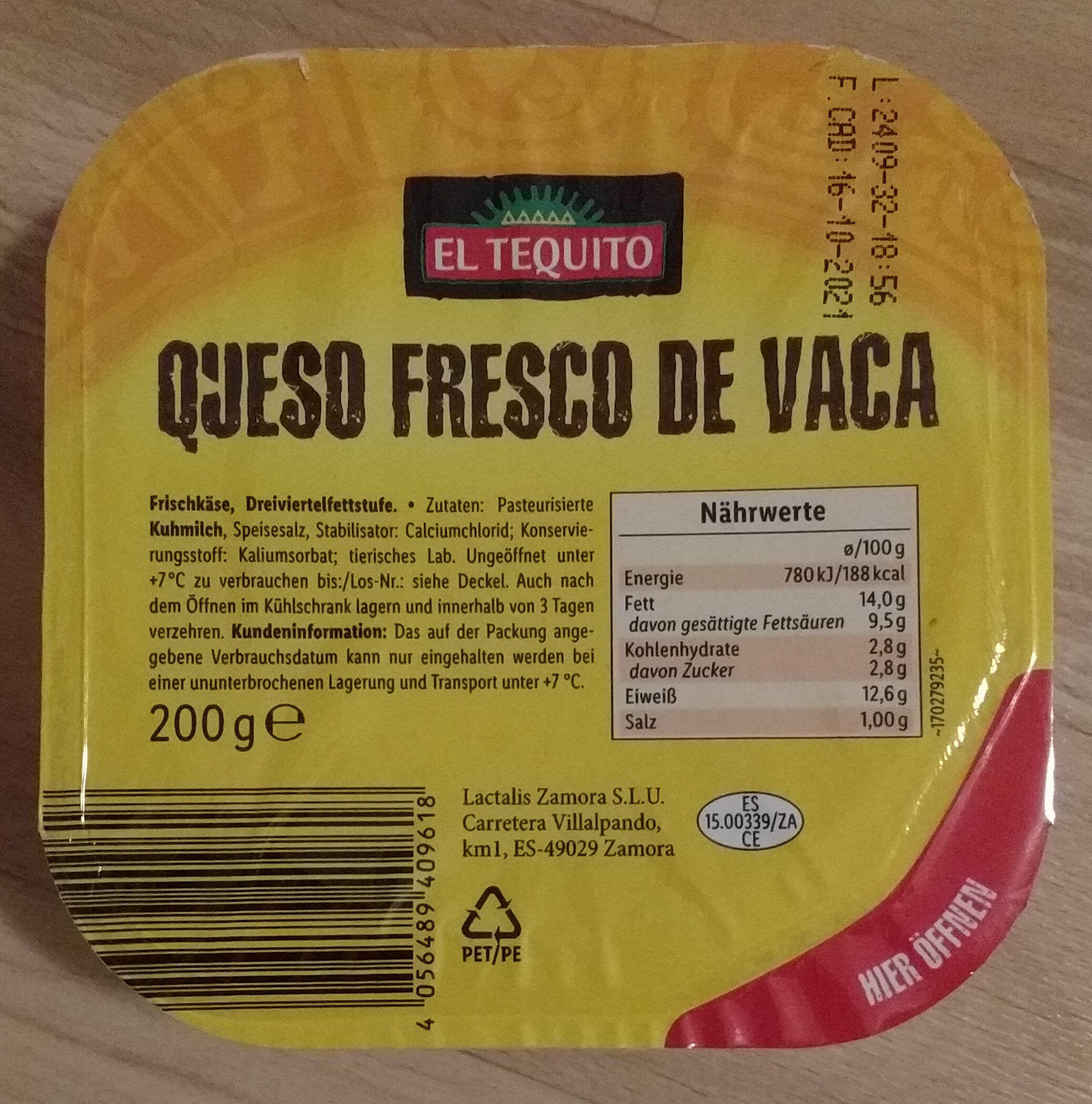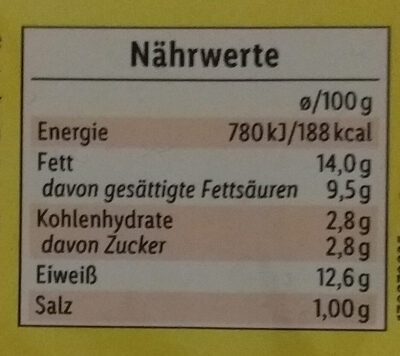Queso fresco de vaca - El Tequito - 200 g
This product page is not complete. You can help to complete it by editing it and adding more data from the photos we have, or by taking more photos using the app for Android or iPhone/iPad. Thank you!
×
Barcode: 4056489409618 (EAN / EAN-13)
Quantity: 200 g
Packaging: Plastic
Brands: El Tequito
Categories: Dairies, Fermented foods, Fermented milk products, Cheeses, Cream cheeses
Origin of ingredients: Spain
Traceability code: ES 15.00339/ZA CE
Stores: Lidl
Countries where sold: Germany
Matching with your preferences
Environment
Carbon footprint
Packaging
Transportation
Report a problem
Data sources
Product added on by mark101080
Last edit of product page on by ecoscore-impact-estimator.
Product page also edited by openfoodfacts-contributors, packbot, roboto-app.
If the data is incomplete or incorrect, you can complete or correct it by editing this page.










